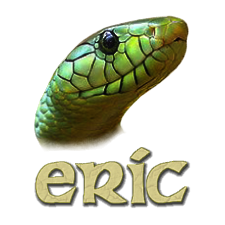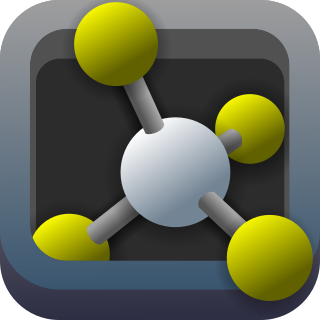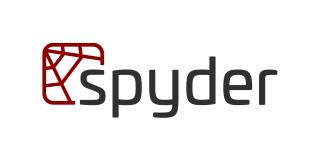Related Research Articles

Python is a high-level, general-purpose programming language. Its design philosophy emphasizes code readability with the use of significant indentation.

A shell script is a computer program designed to be run by a Unix shell, a command-line interpreter. The various dialects of shell scripts are considered to be command languages. Typical operations performed by shell scripts include file manipulation, program execution, and printing text. A script which sets up the environment, runs the program, and does any necessary cleanup or logging, is called a wrapper.
In computing, cross-platform software is computer software that is designed to work in several computing platforms. Some cross-platform software requires a separate build for each platform, but some can be directly run on any platform without special preparation, being written in an interpreted language or compiled to portable bytecode for which the interpreters or run-time packages are common or standard components of all supported platforms.

Portage is a package management system originally created for and used by Gentoo Linux and also by ChromeOS, Calculate, and Funtoo Linux among others. Portage is based on the concept of ports collections. Gentoo is sometimes referred to as a meta-distribution due to the extreme flexibility of Portage, which makes it operating-system-independent. The Gentoo/Alt project was concerned with using Portage to manage other operating systems, such as BSDs, macOS and Solaris. The most notable of these implementations is the Gentoo/FreeBSD project.
Installation of a computer program, is the act of making the program ready for execution. Installation refers to the particular configuration of software or hardware with a view to making it usable with the computer. A soft or digital copy of the piece of software (program) is needed to install it. There are different processes of installing a piece of software (program). Because the process varies for each program and each computer, programs often come with an installer, a specialised program responsible for doing whatever is needed for the installation. Installation may be part of a larger software deployment process.

eric is a free integrated development environment (IDE) used for computer programming. Since it is a full featured IDE, it provides by default all necessary tools needed for the writing of code and for the professional management of a software project.
CPython is the reference implementation of the Python programming language. Written in C and Python, CPython is the default and most widely used implementation of the Python language.

Lazarus is a cross-platform, integrated development environment (IDE) for rapid application development (RAD) using the Free Pascal compiler. Its goal is to provide an easy-to-use development environment for developing with the Object Pascal language, which is as close as possible to Delphi. It is free and open-source software with different parts released under different software licenses.

PyMOL is a source-available molecular visualization system created by Warren Lyford DeLano. It was commercialized initially by DeLano Scientific LLC, which was a private software company dedicated to creating useful tools that become universally accessible to scientific and educational communities. It is currently commercialized by Schrödinger, Inc. As the original software license was a permissive licence, they were able to remove it; new versions are no longer released under the Python license, but under a custom license, and some of the source code is no longer released. PyMOL can produce high-quality 3D images of small molecules and biological macromolecules, such as proteins. PyMOL is widely used.
A batch file is a script file in DOS, OS/2 and Microsoft Windows. It consists of a series of commands to be executed by the command-line interpreter, stored in a plain text file. A batch file may contain any command the interpreter accepts interactively and use constructs that enable conditional branching and looping within the batch file, such as IF, FOR, and GOTO labels. The term "batch" is from batch processing, meaning "non-interactive execution", though a batch file might not process a batch of multiple data.
Web2py is an open-source web application framework written in the Python programming language. Web2py allows web developers to program dynamic web content using Python. Web2py is designed to help reduce tedious web development tasks, such as developing web forms from scratch, although a web developer may build a form from scratch if required.

Minibloq is a graphical development environment for Arduino and other platforms. Its main objective is to help in teaching programming. It is specially used in robotics at elementary, middle and high schools. It's widely used in Argentina, where in the San Luis province alone, more than 60000 children have been trained with this software in public schools.

PyCharm is an integrated development environment (IDE) used for programming in Python. It provides code analysis, a graphical debugger, an integrated unit tester, integration with version control systems, and supports web development with Django. PyCharm is developed by the Czech company JetBrains and built on their IntelliJ platform.

Spyder is an open-source cross-platform integrated development environment (IDE) for scientific programming in the Python language. Spyder integrates with a number of prominent packages in the scientific Python stack, as well as other open-source software. Created by Pierre Raybaut and released in 2009 under the MIT license, since 2012 Spyder has been maintained and continuously improved by Python developers and the community.

Kivy is a free and open source Python framework for developing mobile apps and other multitouch application software with a natural user interface (NUI). It is distributed under the terms of the MIT License, and can run on Android, iOS, Linux, macOS, and Windows.

Anaconda is an open source data science and artificial intelligence distribution platform for Python and R programming languages. Developed by Anaconda, Inc., an American company founded in 2012, the platform is used to develop and manage data science and AI projects. In 2024, Anaconda Inc. has about 300 employees and 45 million users.
MicroPython is a software implementation of a programming language largely compatible with Python 3, written in C, that is optimized to run on a microcontroller.
Nuitka is a source-to-source compiler which compiles Python code to C source code, applying some compile-time optimizations in the process such as constant folding and propagation, built-in call prediction, type inference, and conditional statement execution. Nuitka initially was designed to produce C++ code, but current versions produce C source code using only those features of C11 that are shared by C++03, enabling further compilation to a binary executable format by modern C and C++ compilers including gcc, clang, MinGW, or Microsoft Visual C++. It accepts Python code compatible with several different Python versions and optionally allows for the creation of standalone programs that do not require Python to be installed on the target computer.
References
- 1 2 "py2exe : Python Package Index".
- ↑ "Licence". sourceforge.net May 2014. 19 December 2017.
- ↑ "FrontPage". py2exe.org. Retrieved 2 February 2014.
- ↑ "old Python 2 py2exe".